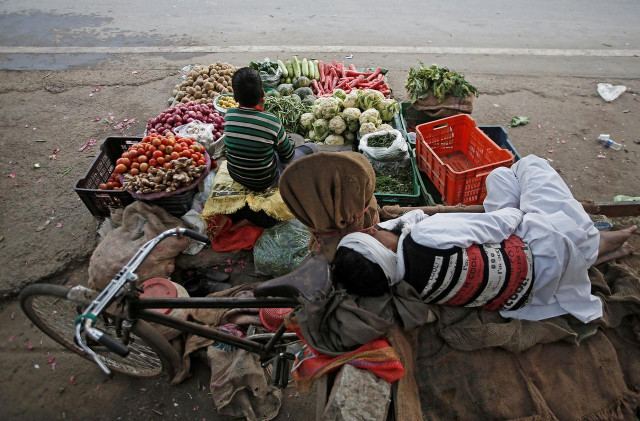August: Inflation eases to 8.2% in Pakistan
Lowest level in three months comes on back of fall in prices of perishable items

The inflation rate eased to 8.2% in August – the lowest in three months – due to reduction in prices of perishable food items amid the government’s decision to quietly increase electricity prices by 11.6% last month.
Measured by the Consumer Price Index (CPI), the average rate of increase in prices of goods and services stood at 8.21% in August, reported the Pakistan Bureau of Statistics (PBS) on Tuesday. Last time the inflation reading had remained at 8.2% in May.
The national data collecting agency has reported the latest inflation figures ahead of the Monetary Policy Committee (MPC) meeting this month that will set the new policy for the next two months.
The 8.2% inflation in August was lower than the federal government’s expectations that had predicted that inflation would remain in the range of 8.4% to 9.7% in August. In July, the reading was 9.3%.
The official PBS bulletin also revealed an 11.6% increase in electricity prices in August over the previous month. An official of the PBS said the increase was on account of monthly fuel price adjustment, notified by the National Electric Power Regulatory Authority (Nepra).
However, last week, the Economic Coordination Committee (ECC) of the cabinet did not take the decision to increase electricity prices on account of fuel price adjustment.
The PBS inflation numbers also showed an 18 paisa increase in prices of electricity for the lifeline consumers, consuming up to 50 units a month.
Core inflation, measured by excluding food and energy goods from the commodities’ basket, inched up to 5.6% in August over July reading of 5.3% in urban areas, according to the PBS. In rural areas, the core inflation dropped from 7.8% to 7.6% in August.
Food inflation in urban areas decreased from 15.1% in July to 11.3% in August. In rural areas, it fell from 17.8% to 13.5%, reported the data collecting agency.
Due to improvement in food supplies, the average increase in prices of perishable food items group was 3.8% last month over a year ago, according to the PBS.
Prices of food and non-alcoholic group increased nearly 12% from a year ago. Non-perishable food group prices rose about 13.6%.
The real challenge to the Pakistan Tehreek-e-Insaf-led federal and all provincial governments was to check prices of staple food and sugar.
Despite Prime Minister Imran Khan’s interest in controlling prices of wheat, wheat flour and sugar, the rates have been increasing constantly. The federal government’s decision to import and export wheat and sugar has a direct bearing on prices in the domestic market.
The government has failed to ensure availability of sugar and wheat at affordable prices, particularly for the low-income groups.
PBS reported that wheat prices increased 44.3% in August over a year ago. Prices of wheat flour rose 2.4%.
After exporting wheat, the PTI government is now in the process of importing 1.5 million tons of wheat that will cost the national exchequer a minimum $480 million at current international market prices.
Sugar prices also increased 28% in August over a year ago, according to the national data collecting agency. On a month-on-month basis, sugar prices went up by 13.5% in August over July.
All this is happening at a time when the prime minister is taking personal interest in controlling prices of wheat and sugar.
Average inflation rate during first two months (July-August) stood at 8.74% as compared to 9.5% in the same period of last fiscal year, according to the PBS.
The central bank also expects average inflation to stay in the range of 8-9%% in the current fiscal year, which is higher than the 6.5% target set by the federal government for 2020-21.



1733130350-0/Untitled-design-(76)1733130350-0-208x130.webp)















COMMENTS
Comments are moderated and generally will be posted if they are on-topic and not abusive.
For more information, please see our Comments FAQ